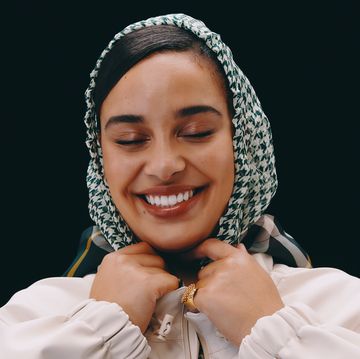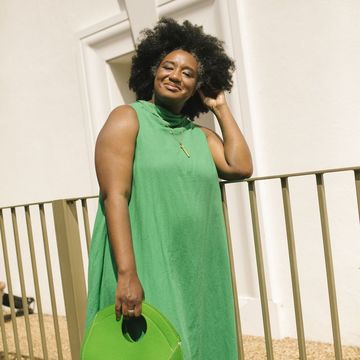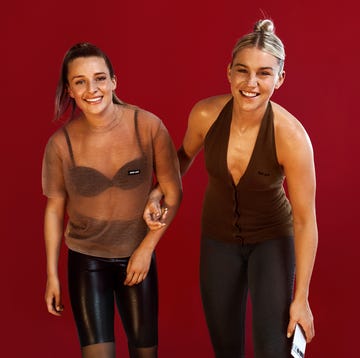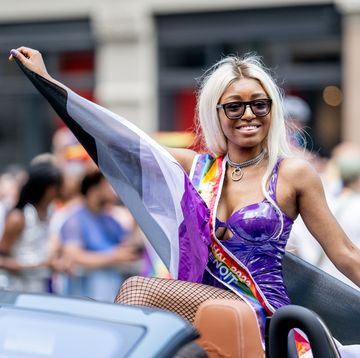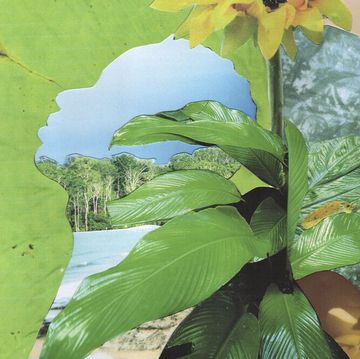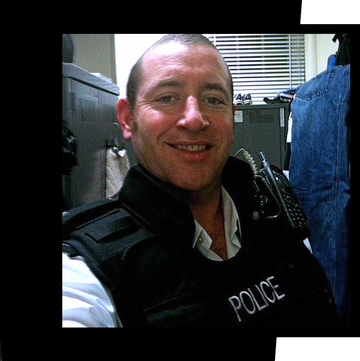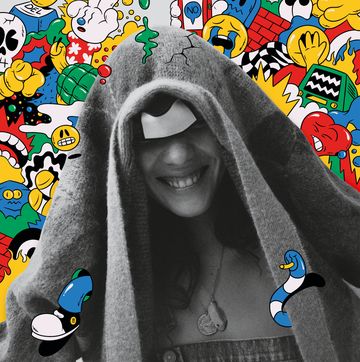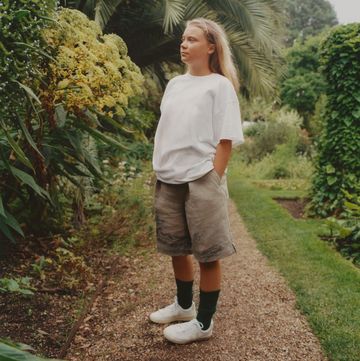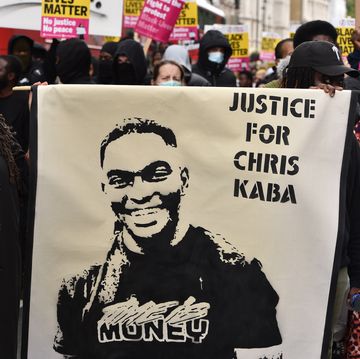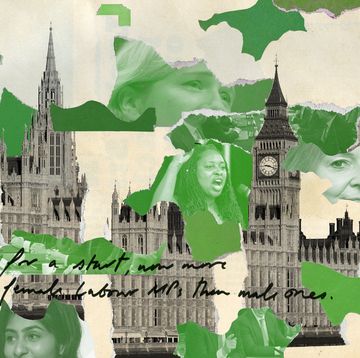I genuinely, hand on heart, did not believe there was going to be a war, despite various news outlets saying it was imminent.
I was born in Zimbabwe, but I live in Leicester usually. I moved to Ukraine (where the international student community mostly comprises of Black and Asian students) to study medicine.
While a second-year student doctor training to become a gynaecologist and obstetrician focussing on maternal health, my one-year-old daughter was being looked after by my mum in Leicester, UK.
It was around 5am when I woke up to see Twitter revealing that the Russian military had bombed Kyiv. My heart sank, I knew the situation would only get worse.
Within hours, Kharkiv (which is close to where I was living with my fiancé – a neurosurgeon - in Dnipro), was also bombed. This came after the Ukrainian media and president Volodymyr Zelenskyy had said there was no war. It felt like there was nothing to signal that it was coming.
So we realised we needed to find a way out. News began to circulate that a tower near the Dnipro airport had been bombed, so there was no way to get a flight. Minute by minute things were worsening. My partner left to find fuel for the car and to try and withdraw some money.
The moment he was gone, and I was left alone to think, I began to feel this creeping fear for the international student community in Ukraine. Many fleeing would have EU passports and be able to roam freely across European borders, but my experience of travelling with a Zimbabwean passport had taught me that, for us, things were going to be more complicated.
Friends from Nigeria and Ghana were already having trouble getting information out of the African embassies about whether they were going to be allowed to cross into to Poland or Romania without a visa.
I tweeted to ask if there were any resources for African students trying to leave Ukraine. Nobody responded. I frantically started looking through websites, trying to find embassy numbers and helpful information. People don’t realise this, but when you’re in Ukraine and you use Google, because it’s location based, all the search results come up in Russian or Ukrainian. It was incredibly stressful.
I started to put together a list of students, their locations and their emergency contact details, so that if further down the line relatives started looking for their loved ones, we had some sort of record. And I created a Telegram group chat, for African students in Ukraine to strategise amongst themselves. The consensus was to make our way to Poland.
My partner was gone almost the whole day. There were major queues for money and petrol and by the time he made it back, a curfew had been implemented. After 8pm we had to switch off all our lights and we weren’t allowed to leave the house.
We did eventually set off, with the backdrop of air strike sirens. Along the way, we picked up two friends in our car and more in a separate car.
The journey from Dnipro to Lviv is usually about 10 hours. It took us 26. We were stopped several times by armed police for driving past the curfew. Everybody had to present their documents. Sometimes they would check the car and ask you to get out of it. If you hesitated, you would suddenly have four or five armed military surrounding you in the pitch black. It was a very scary situation.
I just kept thinking, if anything happens to me, nobody would have a clue where to begin to look for me. So even though I knew it wasn’t the safest idea, I began to document my journey on Twitter.
As we were driving, we came upon a Nigerian man who was stood on the roadside. His friends had a change of heart about leaving the country; they were married to Ukrainians and had left him there. Our group took him with us, and we put him up in our hostel in Lviv.
At the hostel, we came across six other women, from Swaziland, South Africa and Zimbabwe, who had similarly travelled from Dnipro. And they told us of the racial discrimination they’d faced trying to leave the city via public transport. Black people were being physically pushed off the trains. They would try to get on and the conductors would say, ‘No foreigners, please.’ And I was thinking to myself, 'This is crazy.' I couldn’t believe that people were actually experiencing racism during a war.
I took to the Telegram chats and saw that other students were sharing their experiences of being turned away from the Polish border and told to go back to Lviv, or that they had been beaten up by locals.
I decided it wasn’t the best decision for us to go to Poland. We rerouted to Romania instead.
It took seven hours, but we got to the back of the queue, which was about 9 kilomenters away from the Romanian border. We spent two or three days there. Waiting and crawling forwards at such a slow pace. There was no toilet, no food, nothing. I had started my period, and I didn’t have anything with me.
Finally, when we got to the front, this man, a civilian, told us that we need to exit the queue. He didn’t explain why. So I got out of the car and walked up to a military soldier for help. He told us to leave the queue.
I was trying to be optimistic, imagining that he was just trying to de-escalate the situation.
At the same time, the first man knocked on my partner’s car window and gestured for him to get out and join a different, pedestrian queue. Now, this pedestrian queue was really, really long. And as I looked down the line, it dawned on me that the only people in this other queue were Asian, Black or Arab. There was not a single white person in that queue.
I took out my camera to video what was going on and as I was switching it on, the man who knocked on the car lunged at me. The soldiers just stood there, doing nothing. Afterwards, they sniggered amongst themselves.
We tried calling the British Embassy. I told them where we were and gave our licence plate. They suggested that they were sending someone across the Romanian border to fetch us. We waited for 10 hours, though, and nobody arrived.
At this point, it started snowing.
A group of Indian students who had witnessed the whole incident offered to let us join the pedestrian queue where they were stood, so that we didn’t have to go all the way to the back and wait in the snow for another day or two. It was really cold. I checked the weather. It was minus three degrees.
As we waited, I hopped back into the Telegram chats. I had been trying to fund people’s evacuations with some money that I had saved. When that had run out, I had begun trying to connect people who couldn’t afford the travel cost of fleeing, with those that would be willing to pay for them. But what I was seeing more and more of were the stories of racism that people were facing.
We arrived at the final checkpoint, the passport control on the Ukraine side and we were funnelled into a fenced off area, full of only Black, Asian and Arab people. Looking through the fence to the right, I could see buses, and hordes of Ukrainian families just crossing the border freely. They weren’t having to wait, they were just walking through.
Somebody said it was because they were prioritising women and children. But I just thought, ‘I’m a woman, and I am behind this fence.’ And in Telegram I was hearing of other African women who had children, who were left to queue in the cold. We were hearing that people were dying of hypothermia. Because there was no medical aid. There was no food being distributed. No Red Cross or ambulances. I remember thinking over and over, ‘Thank God, my daughter isn’t here.’ I had wanted to bring her over to be with me. What a nightmare that would have been.
We got through passport control and into just this space. Five minutes of no man’s land. A surreal, yet very real division between one set of experiences and another, because on arrival in Romania, everything was different.
There were volunteers. Hundreds of volunteers. People were so kind, so warm. We were given SIM cards and taken to a refugee camp that was really a hotel. They reassured our friends whose passport had expired that they would be given help in the immigration centre and that everything would be fine. We were given blankets and medication, donated clothes and sanitary products, there were ambulances and busses to the different embassies.
After the things we had been through, the gratitude we felt was indescribable. It was moving to see how these people in Romania had organised help that was free for all, no matter if you were Black, Indian, white or otherwise. Everybody was welcome and we were no longer segregated.
The rest of our journey back to the UK wasn’t easy. There were huge waits at Luton airport, a lot of interviews by Border Force and my partner’s eligibility to travel and seek asylum was questioned again and again. I had to speak to the British Embassy a number of times. At one point I was left for so long that my period soaked through my jogging bottoms, which made me very uncomfortable. But we made it back to Leicester. And my daughter was there, as well as my auntie. And now, we’re just trying to rebuild our lives.
So, with regards to the 80,000 international students who were in Ukraine, most students who come to Ukraine come to study medicine, dentistry, pharmacy (mainly medical healthcare professions) and some in varying STEM professions.
Some were medical students from 1-6 years and some were medical graduates doing their masters and specialising but they would still be considered students.
So essentially, the world has lost out on thousands of doctors because as it stands the universities are either not allowing students to transfer, they may have to apply again from first year even if they were months away from finishing their degrees, and even if that is an option, most students can not afford the school fees.
This has already resulted in students just giving up altogether.
We face a number of hurdles. I can't go back to university because it’s closed until further notice. Universities in the UK have said that they can't help us. So I feel like I it’s going to be a campaign to try and regain access to education, to continue studying. There's going to be even more disparity in how Black people are treated in the health sector. So many Black doctors and potential Black doctors have been directly impacted. There were around 80,000 international students in Ukraine, most of whom were there to study medicine, dentistry, STEM or pursue pharmaceutical careers. So, without recourse to complete their courses, the medical professions have lost out on thousands of people. With two friends Patricia and Tokunbo, I’ve founded Black Women for Black Lives, to try and provide help for others, especially students, trying to leave and experiencing racism as they flee the war. So we’re doing that work.
But I’m still reliving the trauma of what we went through. I think about the sacrifice that I made, leaving my daughter, in order to study — to be able to provide a better life for her in the long run. And now, having had my education completely disrupted, it’s hard not to think that she missed out on having me in the first year of her life, for what? It feels like we are all just in limbo, not knowing what happens next.
For more information about Korrine's Black Women For Black Lives organisation, and to donate to her cause CLICK HERE




